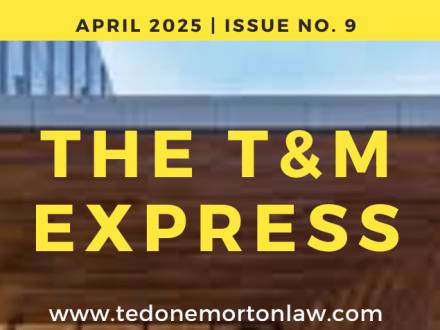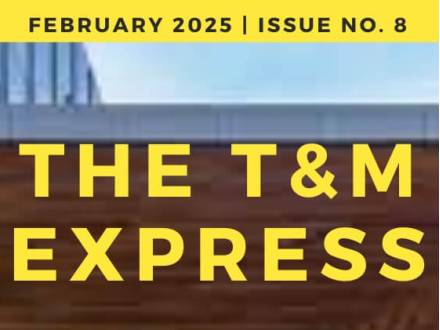Recent Blog Posts
What Keeping the Marital Home Means for Your Divorce
 In the midst of a divorce, you may have strong feelings about keeping the marital home you once shared with your spouse. Securing the marital home is possible with skilled negotiation, and can provide a source of long-term security and comfort. However, you should keep in mind that retaining ownership of your house comes with numerous considerations and possible drawbacks. An Illinois family law attorney can advise you of your options and help you pursue an ideal outcome. At Law Offices of Tedone and Morton, P.C., our experience in and outside the courtroom helps us support our clients by engaging in aggressive negotiation.
In the midst of a divorce, you may have strong feelings about keeping the marital home you once shared with your spouse. Securing the marital home is possible with skilled negotiation, and can provide a source of long-term security and comfort. However, you should keep in mind that retaining ownership of your house comes with numerous considerations and possible drawbacks. An Illinois family law attorney can advise you of your options and help you pursue an ideal outcome. At Law Offices of Tedone and Morton, P.C., our experience in and outside the courtroom helps us support our clients by engaging in aggressive negotiation.
Keeping the Marital Home Affects Property Division
Often, keeping the marital home comes with strings attached. This is true whether you settle out of court or take the issue to a judge. If you want to keep your marital home, you may have to make some concessions to compensate your spouse. This could mean surrendering other assets, like a greater portion of your shared bank account.
Karina’s Law: Strengthening Gun Enforcement in Illinois Domestic Violence Cases

Karina’s Law: Strengthening Gun Enforcement in Illinois Domestic Violence Cases
By the Criminal Law Team
Illinois has taken a significant step toward protecting victims of domestic violence with the passage of Karina’s Law, which was signed into effect by Governor J.B. Pritzker in February 2025. This new law mandates that law enforcement immediately remove firearms from individuals whose Firearm Owner's Identification (FOID) cards have been revoked due to an order of protection.
Why Karina’s Law Matters
The law is named in honor of Karina Gonzalez and her 15-year-old daughter Daniela, who were tragically killed in 2023 by Karina’s estranged husband—despite Karina having an active order of protection against him. The tragedy highlighted a dangerous gap in Illinois law: even when a protective order is issued and a FOID card is revoked, guns often remain in the hands of potentially dangerous individuals.
What Can I Do if My Ex Refuses to Pay Child Support?
 Raising a child as a single parent is not easy, even more so if your co-parent does not honor his or her legal obligation to pay child support. Trying to get your ex to pay when they purposely refuse can feel like an uphill battle, but thankfully, you have options. An Illinois family law attorney can provide you with aggressive representation and counsel focused on enforcing your child support agreement and protecting your rights.
Raising a child as a single parent is not easy, even more so if your co-parent does not honor his or her legal obligation to pay child support. Trying to get your ex to pay when they purposely refuse can feel like an uphill battle, but thankfully, you have options. An Illinois family law attorney can provide you with aggressive representation and counsel focused on enforcing your child support agreement and protecting your rights.
At Law Offices of Tedone and Morton, P.C., we sympathize with single parents. When you work with our lawyers, we will strive to make things right for you, advocating for a fair remedy. There are many ways the court can compel a delinquent parent to pay up, and we will do everything we can to help secure missing payments.
Wage Garnishment
One of the most direct ways of getting late child support payments is through wage garnishment. By petitioning the court, you can potentially collect the child support payments directly through your ex’s earnings. Up to half of your ex’s earnings can be confiscated to cover child support, plus interest.
What to Include in Your Prenup
 A prenuptial agreement can be a powerful tool to protect your assets in the event of a divorce. However, it can be difficult to figure out what to prioritize in your prenup if you have never written one before. An Illinois divorce attorney can guide you through the process of drafting a prenuptial agreement, helping you identify any sources of liability.
A prenuptial agreement can be a powerful tool to protect your assets in the event of a divorce. However, it can be difficult to figure out what to prioritize in your prenup if you have never written one before. An Illinois divorce attorney can guide you through the process of drafting a prenuptial agreement, helping you identify any sources of liability.
At the Law Offices of Tedone and Morton, P.C., we have the legal knowledge and experience to help you draft a proper prenuptial or postnuptial agreement to protect your interests. Our lawyers will take the time to understand what is at stake for you so that we can draft a proper agreement.
Terms for Alimony
Alimony is not always awarded in Illinois divorces, but it may be helpful to decide how you want to allocate alimony ahead of time. If you and your spouse take home roughly the same income, you may decide that spousal maintenance is not necessary. However, if your incomes are uneven or one of you is planning to work less to raise children, you might agree to pay a fixed amount of alimony if you get divorced.
Things to Think About Ahead of Your Divorce
 It can be hard to accept that your marriage has irretrievably broken down. But at the same time, the decision to get a divorce can be a productive step forward for your life. Before you file for divorce, you should think hard about what this separation will mean for your future. If you are wracked with doubt over the decision to divorce, an Illinois family law attorney can provide you with legal advice to protect your best interests.
It can be hard to accept that your marriage has irretrievably broken down. But at the same time, the decision to get a divorce can be a productive step forward for your life. Before you file for divorce, you should think hard about what this separation will mean for your future. If you are wracked with doubt over the decision to divorce, an Illinois family law attorney can provide you with legal advice to protect your best interests.
At the Law Offices of Tedone and Morton, P.C., we provide personalized legal services to help our clients get through divorce. When you work with our firm, we will take the time to understand your goals so that we can more effectively negotiate on your behalf.
Where Will You Live?
If you and your spouse have lived together for years, you might struggle to imagine any other place to call home. Many couples get into heated debates about ownership over the marital home, but in other cases, your spouse might be comfortable moving out. Depending on where you want to live after your divorce, Law Offices of Tedone and Morton, P.C. can help you prioritize your needs.
When Will a Judge Award Sole Physical Custody in Illinois?
 In Illinois, the courts generally prefer joint custody in divorces with children. When parents share joint physical custody, they can both remain present in the child’s life and work out a reasonable schedule for parenting time. Although joint custody is sometimes treated as the ideal solution, it is not right for every family.
In Illinois, the courts generally prefer joint custody in divorces with children. When parents share joint physical custody, they can both remain present in the child’s life and work out a reasonable schedule for parenting time. Although joint custody is sometimes treated as the ideal solution, it is not right for every family.
If you want to petition for sole custody of your child, an Illinois divorce lawyer can represent your preferred solution in court. At Law Offices of Tedone and Morton, P.C., we provide personalized legal services to help you throughout a custody dispute. As aggressive negotiators and skilled litigators, we can adjust our approach to suit your needs.
Conflict Between The Parents
Divorce is a naturally stressful situation for a child, but that stress can be compounded in high-conflict divorces. If you and your ex cannot stand to be around each other to a point where contact almost always results in an argument, joint custody may not be the solution for you.
The Trouble With Courtroom Divorces
 When your relationship with your spouse is slowly but surely becoming a burned bridge, the idea of going to mediation can be nauseating. A litigated divorce in the courtroom can seem like a preferable alternative, allowing you to advocate for your preferred outcome in front of a judge. However, this route may not be in your best interests, and is usually better saved as a last resort.
When your relationship with your spouse is slowly but surely becoming a burned bridge, the idea of going to mediation can be nauseating. A litigated divorce in the courtroom can seem like a preferable alternative, allowing you to advocate for your preferred outcome in front of a judge. However, this route may not be in your best interests, and is usually better saved as a last resort.
If you are considering divorce, our skilled Illinois family law attorneys at the Law Offices of Tedone and Morton, P.C. can walk you through your options to avoid an explosive courtroom divorce. Attorney Barbara Morton has over 20 years of experience in issues of family law, and she can provide you with legal guidance and aggressive negotiation throughout the dissolution process.
Scheduling
Courts of family law are frequently swamped with multiple cases at a time. As such, scheduling a court date – let alone multiple court dates – can be a tiresome effort. If you choose to handle your divorce entirely through the courts, you might have to wait months or even years to finalize it.
Who Gets the Pets in a Divorce? Understanding Pet Custody Disputes.

Who Gets the Pet in a Divorce? Understanding Pet Custody Disputes
Divorce is already an emotional process, but when pets are involved, it can become more complicated. While pets are often considered family members by their owners, most states still treat them as property in divorce proceedings. However, courts are increasingly recognizing the importance of pet custody and may consider factors beyond ownership.
If you are facing a dispute over a beloved pet or companion animal, here’s what you may need to prove you are the custodial pet parent. The following are some of the issues a judge may review:
How to Prove You Are the Custodial Pet Parent
To strengthen your case for keeping the pet, you should demonstrate that you are the primary caregiver. Some key ways to prove this include:
- Providing Financial Support – Show that you have been responsible for veterinary bills, food, grooming, and other pet-related expenses.
Three Tips to Avoid Marital Debt in Your Divorce
 Property division in a divorce can be convoluted to sort out. Many people are surprised to find out that they could be responsible for their spouse’s debt, even if they seemingly had nothing to do with it. Thankfully, you can take steps to try to avoid marital debt in a divorce. An Illinois divorce attorney can help you plan around potential sources of liability, protecting you in the long run.
Property division in a divorce can be convoluted to sort out. Many people are surprised to find out that they could be responsible for their spouse’s debt, even if they seemingly had nothing to do with it. Thankfully, you can take steps to try to avoid marital debt in a divorce. An Illinois divorce attorney can help you plan around potential sources of liability, protecting you in the long run.
At Law Offices of Tedone and Morton, P.C., we have the experience to assist you with complex issues of property division, including debt division. We secure results outside of court through aggressive negotiations, but if necessary, we can take your case to court.
Separate Credit Cards
Credit cards can be an unexpected source of debt during a divorce. If you and your spouse shared a credit card during your marriage, you could end up paying for a portion of that debt even if you did not accrue it yourself.
Why Do Spouses Stay Together in Troubled Marriages?
 Over time, marriages can run aground on rocky shores. Adversity and arguments are normal in a marriage, and conflict resolution is foundational for a strong relationship. However, when a marriage reaches a point of stagnation or coldness, some spouses may decide to stay together even if divorce might seem like an appealing option. The reasons for this are complex, varying from couple to couple, and sometimes, it serves their long-term interests to stay together even if the relationship feels distant.
Over time, marriages can run aground on rocky shores. Adversity and arguments are normal in a marriage, and conflict resolution is foundational for a strong relationship. However, when a marriage reaches a point of stagnation or coldness, some spouses may decide to stay together even if divorce might seem like an appealing option. The reasons for this are complex, varying from couple to couple, and sometimes, it serves their long-term interests to stay together even if the relationship feels distant.
If you find yourself in a troubled marriage, a Joliet, IL family law attorney can serve as a source of counsel, providing legal advice and representation whether you decide to remain married or get a divorce. At Law Offices of Tedone and Morton, P.C., our attorneys are ready to advocate for your desired outcome, bringing our full knowledge of the law to each case.
Benefits
Even when a relationship turns stale, many couples opt to stay together for the mutual benefits of marriage. A couple filing jointly on their tax returns can reap significant savings compared to filing separately, which is why many couples going through a divorce opt to file their last tax return together. Furthermore, it is common for spouses to make use of each other’s employer benefits, incentivizing them to stay together.









